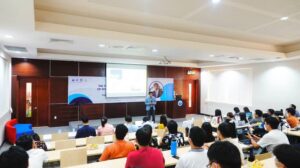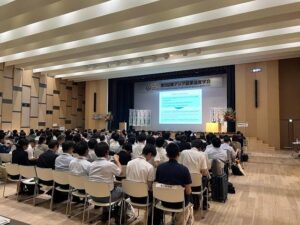Back to: Organic Chemistry 400 Level
Welcome to class!
Hello wonderful learner, it’s great to see you again today. I truly appreciate your dedication to learning, and I’m excited for today’s lesson because it will help you connect all the knowledge you’ve been gathering so far in a practical and analytical way. Our topic is Seminars & Case Studies – an essential component of your development as a professional scientist and researcher. Instead of learning concepts in isolation, this area teaches you how to present, analyse and apply scientific information in real and meaningful ways.
Seminars & Case Studies
Just think of it as learning how to confidently explain and apply chemistry the way experienced lecturers, scientists and industry experts do when solving real problems or sharing findings with others.

Meaning and Importance of Seminars
A seminar is an organised presentation or discussion where a student or researcher gives a structured talk on a specific topic to an audience. It offers an opportunity to deepen knowledge, practise communication skills and receive constructive feedback.
Seminars are important because they:
Encourage critical thinking and independent study.
Help improve presentation and communication skills.
Allow learners to engage with current research and recent advances.
Provide a platform for peer-to-peer learning and open discussions.
For example, presenting a seminar on recent advances in anticancer organometallic compounds forces you to read journal articles, prepare slides and explain your findings clearly to colleagues — just like a real scientist.
Understanding Case Studies
Case studies are real-life or simulated situations used for teaching and analysis. In chemistry, a case study may focus on a specific research problem, a drug design challenge, or a real industrial process.
Case studies are valuable because they:
Bridge the gap between theory and practice.
Improve problem-solving skills.
Encourage group collaboration and discussion.
Allow learners to apply knowledge in realistic contexts.
For example, you may be given a case study describing the failure of a particular malaria drug in certain rural communities. Your task might be to analyse the structure–activity relationship, suggest chemical modifications, and propose a more effective analogue.
Structure of a Good Seminar Presentation
To deliver a strong seminar, the following structure is very important:
Title and Introduction – clearly state the topic and its relevance.
Background/Literature Review – summarise existing knowledge or research.
Main Discussion/Case Analysis – present findings, mechanisms, diagrams and key issues.
Conclusion – summarise major points and future applications.
Question and Answer Session – allow the audience to ask questions and contribute.
Always use clear language, proper scientific diagrams and examples that support your message. It’s similar to telling a detailed story — only this time, the story is built on scientific facts.
Steps in Performing a Case Study Analysis
Carefully read and understand the case
Identify the problem or research question

Collect relevant data and apply scientific principles
Evaluate possible solutions or outcomes
Make recommendations based on your analysis
Think of this process like treating a patient in a hospital – you take a history, run tests, interpret results and decide on a treatment plan. In the same way, chemists analyse the data and decide on the best way forward based on facts.
Summary
- A seminar is a structured presentation aimed at sharing information and encouraging discussion.
- Seminars help develop critical thinking, communication and deep subject knowledge.
- Case studies involve the analysis of real or hypothetical situations to apply theoretical knowledge.
- A good seminar includes an introduction, background, discussion, conclusion and Q&A session.
- Case study analysis involves identifying a problem, collecting data, applying scientific principles and proposing solutions.
Evaluation
- What is a seminar and why is it important for chemistry students?
- List the major steps involved in analysing a case study.
- Give two benefits of case studies in scientific learning.
- Outline the structure of a good seminar presentation.
Amazing work! Keep up the excellent energy — Afrilearn is proud of your dedication and excited to continue building your confidence and mastery. You are becoming a true scientific thinker!
